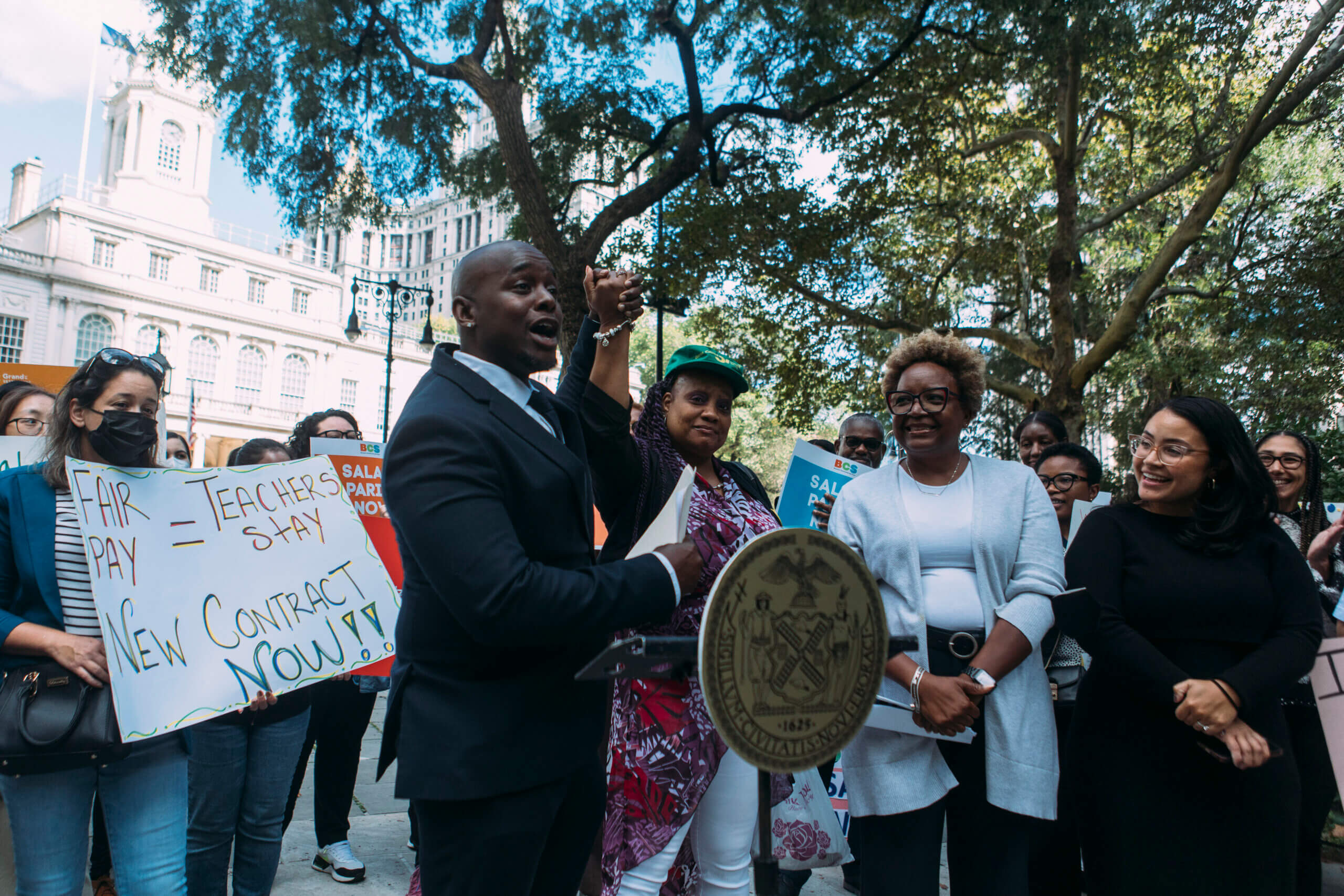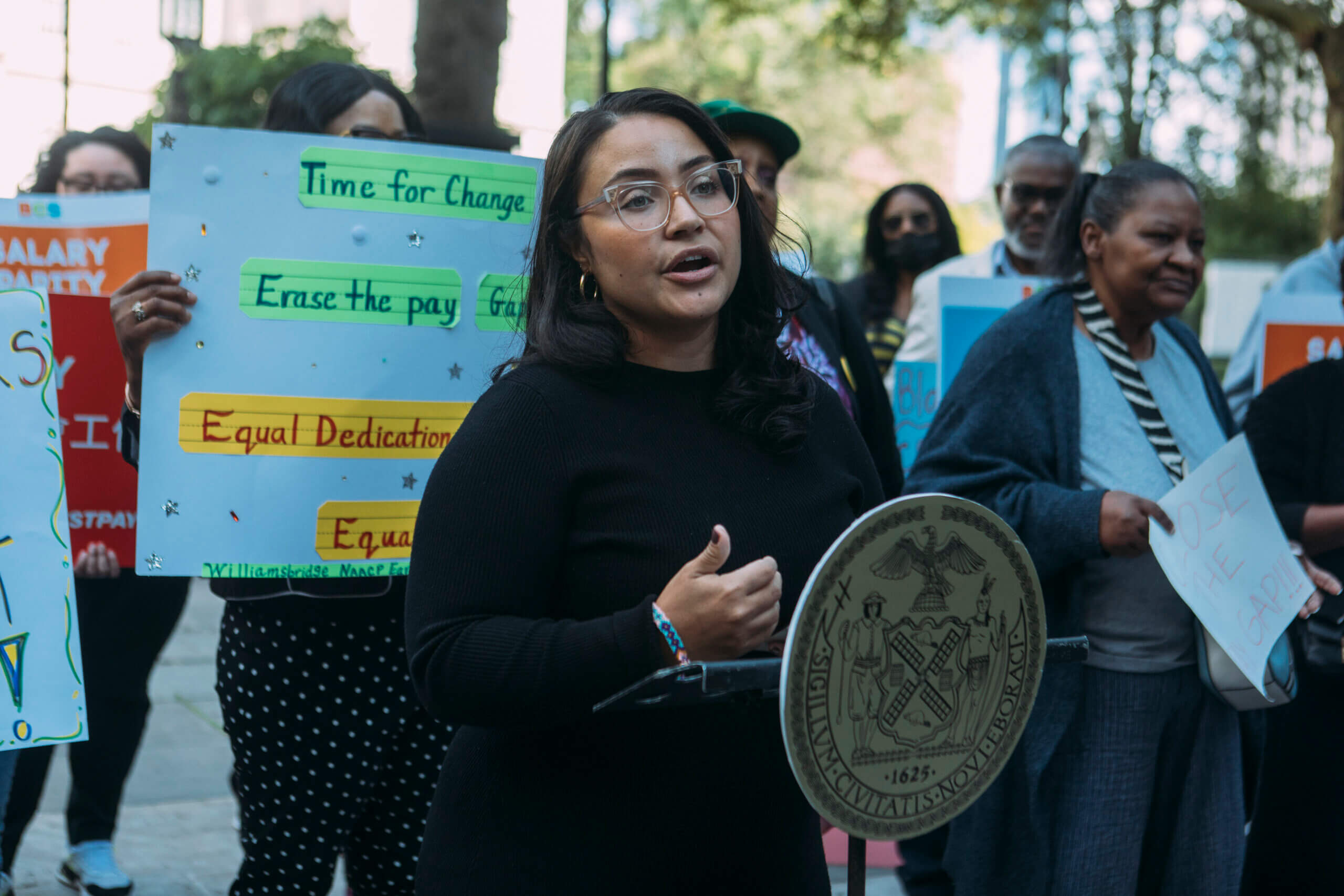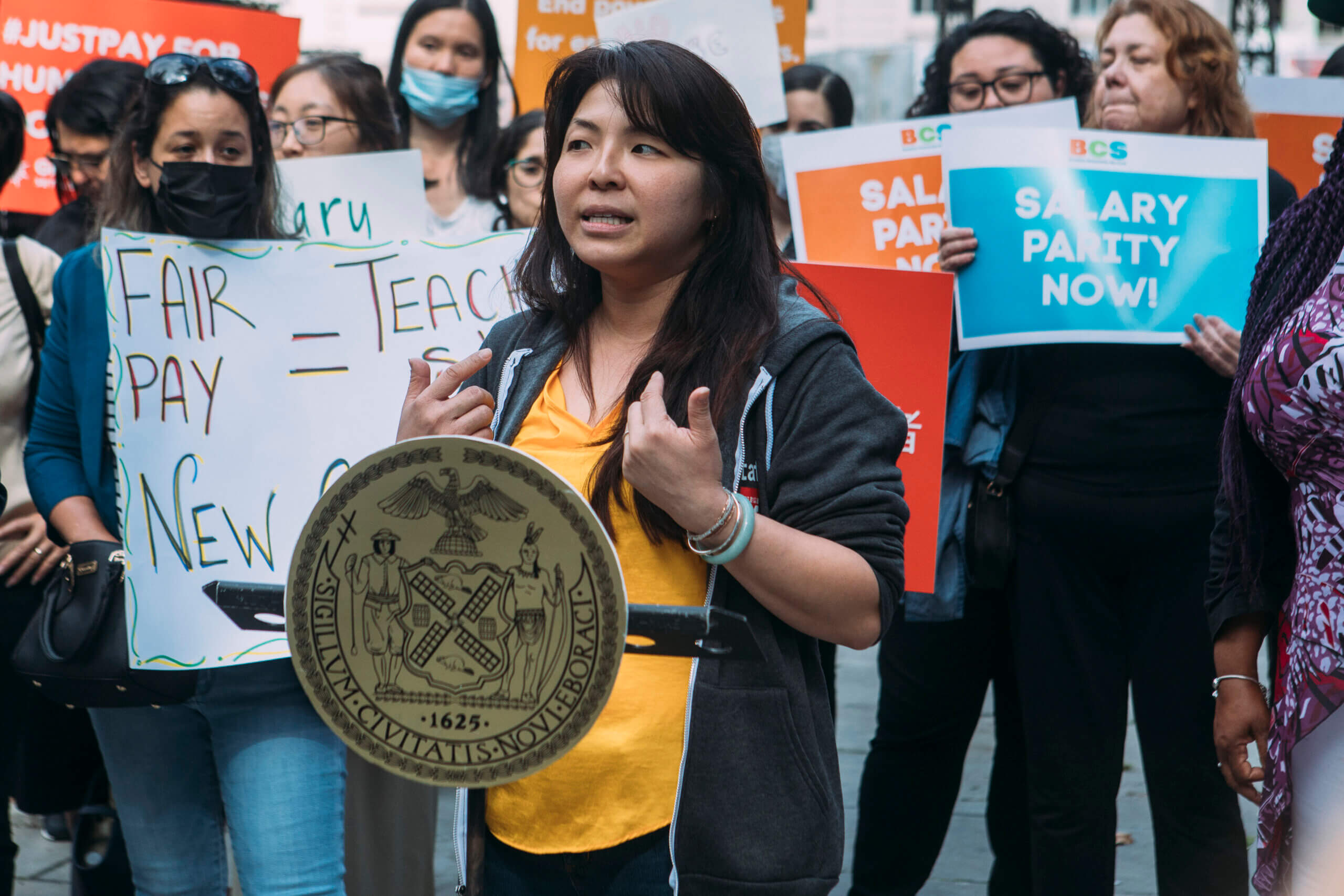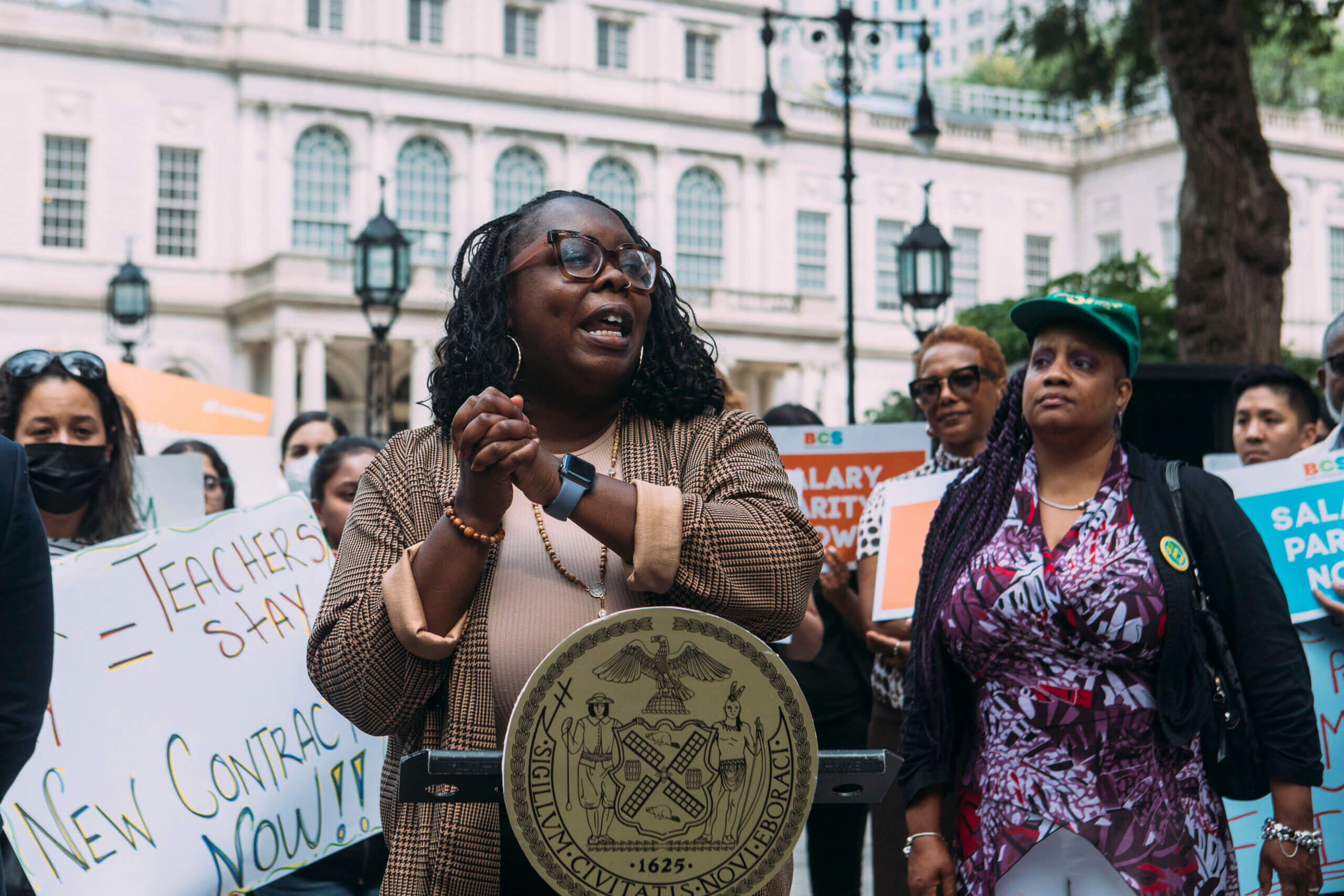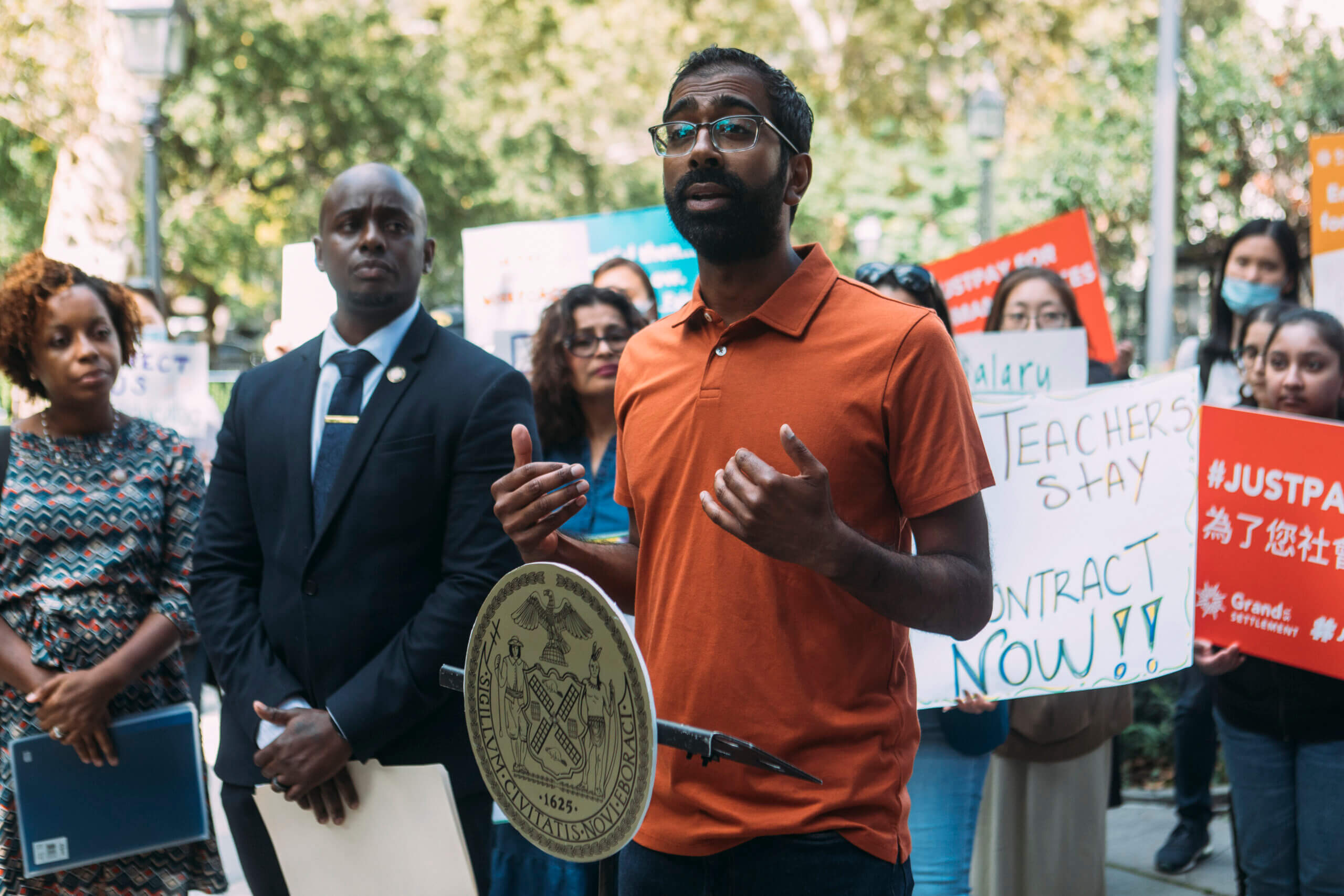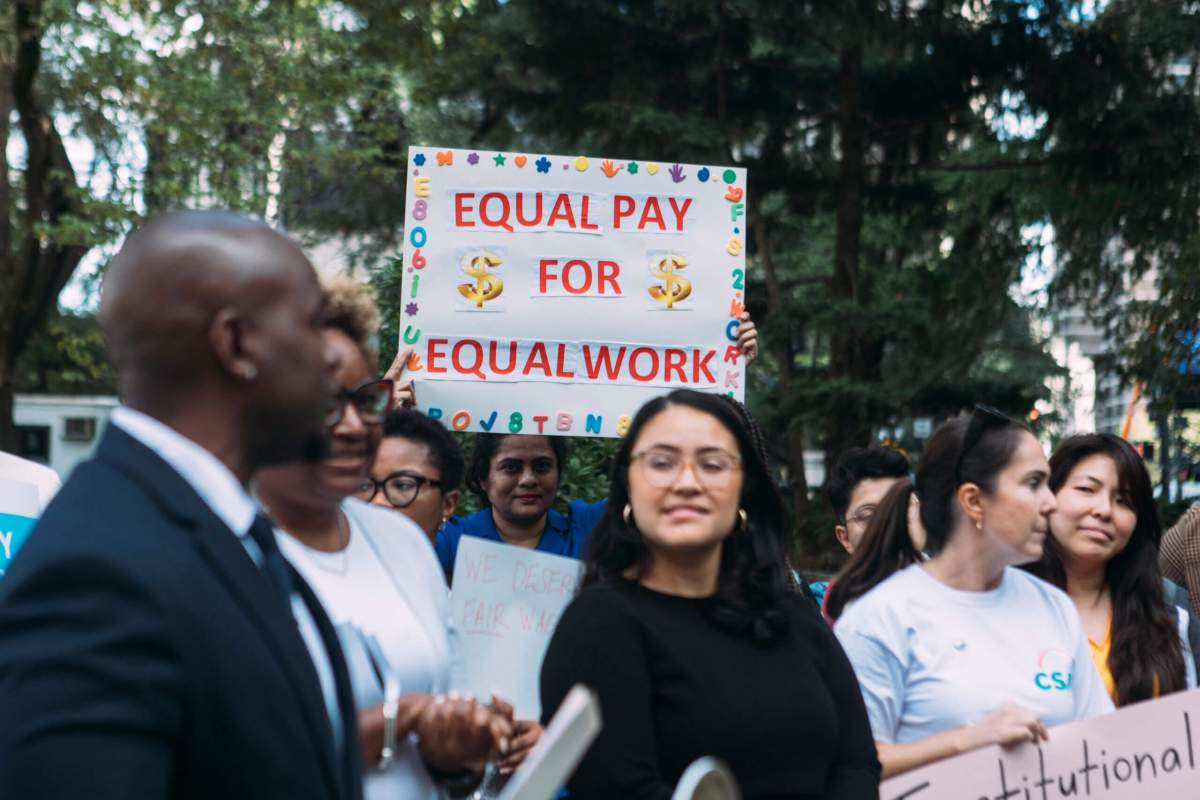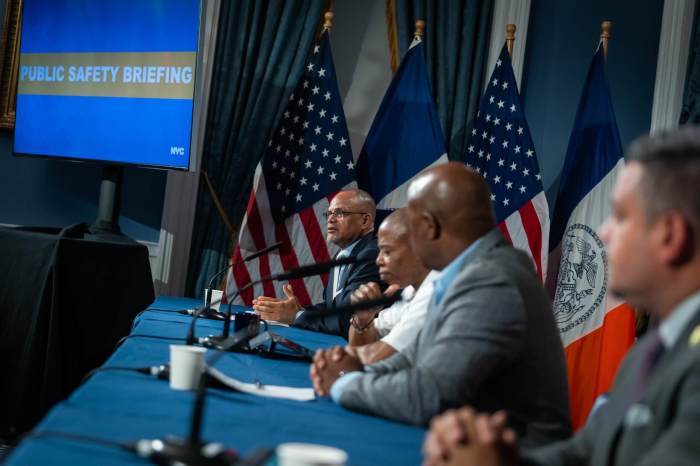Pay parity issues continue to be an issue for early childhood education workers at community-based organizations and their counterparts who work at school-based programs, according to a new report released Tuesday.
The City Council’s Black, Latino and Asian Caucus (BLAC) and the Day Care Council of New York released the report, “Why New York City Must Complete the Path to Parity for the Community-Based Early Childhood Education Workforce.” There was a press conference held the same day to discuss the report’s findings and recommendations.
The report details the salary disparities impacting mostly women of color who are teachers, directors, and staff at city-funded, community-based early childhood education programs.
There could be a 53% difference in salary between a certified early childhood educator at a community-based organization and a certified teacher in a public school, despite similar experiences, according to the report.
The caucus and Day Care Council are calling for a new agreement with the city that factors longevity into pay structure, incorporates per diem compensation for summer work, funds labor contracts that keep pace with DOE counterpart wages, and includes all childcare staff in wage increases. Staff wages are primarily funded and set by city contracts.
BLAC Co-Chair and City Council Member Kevin Riley (D-12) stated that the caucus continues to stand behind the workers who provide crucial care for many children in New York City.
“To ensure continuity in care, CBO childcare workers must receive equitable, competitive wages on par with their DOE counterparts,” Riley said. “We expect all parties to engage in good-faith contract negotiations.”
The report points to collective bargaining negotiations planned for this year as an opportunity to address true parity and ensure that community-based organization workers obtain salaries, bonuses, and benefits that honor their training and experience.
The childcare centers and home-based programs are the only publicly funded, affordable places that offer extended day, extended year care, and programming for the youngest children up to five years old. Community-based early childhood provider staff often must leave their jobs to work at school-based programs or other higher-paying jobs instead.
This has led to staffing and operational challenges for childcare centers, according to the caucus. The Day Care Council of New York surveyed its members this year and found that 83% of its centers dealt with staff vacancies in the past year. Almost 25% of centers experienced seven or more vacancies in a single year.
Council Member Jennifer Gutiérrez (D-34) acknowledged that childcare providers are paid some of the lowest wages and does not represent their worth.
“Our communities should be judged on how we care for our young and most vulnerable,” Gutiérrez stated. “A city that fails to invest in our children and our childcare economy is putting our future in danger.”
The city had agreed to raise the salary floor in 2019 for certified public school teachers but did not include the same annual or longevity increases for childcare education program staff. Childcare workers in New York City earn a median annual wage of $35,491, according to the report.
The caucus proposed solutions to address the early childhood care crisis in March. In a letter to New York City Mayor Eric Adams and Schools Chancellor David Banks, over two dozen city council members urged the city to improve salary parity between community-based organizations and DOE counterparts and pay DOE contractors for their childcare services during the 2022 and 2023 fiscal years.
The new report details expand on solutions and detail a funding structure that would better support early childhood education workers, including funding new labor contracts that match DOE wages, COLA adjustments and bonuses, including summer Per Diem rates for year-round programs, factoring longevity differentials into salary increases, and establishing a $25 minimum wage floor for all support staff.
Tara Gardner, the executive director of the Day Care Council of New York, stated that the pay disparity is a legacy of discrimination against work that women have traditionally performed.
“The pay offered to these essential workers is inadequate and unfair,” Gardner stated. “Professionals working in community-based organizations lose out time and again because of this historic compensation inequality.”
